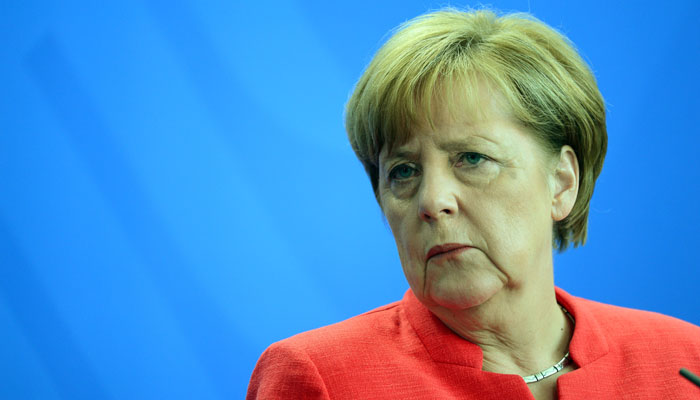German Chancellor Angela Merkel has said there is no link between approval of applications from Turkish asylum seekers in Germany and a visit to German troops in Turkey’s Konya province by German lawmakers.
Merkel’s remarks came during the annual “Summer Interview” with German broadcasting service ARD in Berlin on Sunday.
A total of 3,206 Turkish nationals have applied for asylum in Germany in the first six months of 2017, data from the German Federal Office for Migration and Refugees (BAMF) have recently shown.
According to the report by BAMF, there has been an increase in the number of Turkish nationals who applied for asylum in Germany in the first six months of 2017 since a failed coup attempt in Turkey on July 15, 2016.
After being denied a visit by Ankara last week to visit German troops flying AWACS surveillance planes from the NATO base in Konya province due to tense relations between the two countries, Merkel said there would be no compromise and that asylum applications by Turkish nationals in Germany would not be part of the political bargain since these two issues have “nothing, but nothing, to do with each other.”
Underlining that any demands from the Turkish authorities concerning asylum requests by Turkish citizens would be turned down, Merkel said: “Before we draw conclusions, we should first wait for talks and discuss these things with NATO’s help.”
Germany has begun to withdraw forces from Turkey’s İncirlik Airbase after the Turkish government denied requests from German parliamentarians to visit the troops at İncirlik.
It is said that some lawmakers are demanding a withdrawal from Konya of German troops in the event Ankara does not agree.
“This whole issue is unfortunate, very unfortunate,” Merkel said on Sunday.
Turkey’s Foreign Ministry expressed regret in a statement in May over Germany approving the asylum requests of a number of Turkish military officers.
“With this decision, German authorities have shown tolerance and embraced a pro-coup mentality by disregarding democratic principles and values as well as the requirements of being allies,” said the ministry’s statement.”
The coup attempt on July 15 killed 249 people and wounded more than a thousand others. Immediately after the putsch, the Justice and Development Party (AKP) government along with President Recep Tayyip Erdoğan pinned the blame on faith based Gülen movement.
Contrary to accusations made by Erdoğan and the Turkish government, the head of Germany’s Federal Intelligence Service (BND), Bruno Kahl, on March 18 said Turkey could not convince them that US-based Turkish-Islamic scholar Gülen was behind the failed coup attempt on July 15.
Already existing tensions between the two countries recently escalated when Berlin refused to allow a possible rally by Erdoğan during the G20 summit and Erdoğan’s security detail, who attacked protesters in Washington in May, was denied entry into Germany.
Erdoğan told German weekly Die Zeit prior to his visit that Berlin is committing suicide by not allowing him to speak to Turks living in Germany on the sidelines of a G20 summit.
As tension continues between the two capitals, the pro-government Star daily targeted German foundations in Turkey, accusing them of being behind all social, ethnic and sectarian problems in the country.
Relations between Turkey and Germany have also deteriorated over the past year due to the blocking of a campaign in Germany for a referendum in Turkey, Erdoğan’s repeated emphasis on reintroducing the death penalty, Germany’s granting of asylum to military officers and diplomats who are accused of the failed coup attempt and human rights abuses in Turkey, including the arrest of two German-Turkish journalists.

